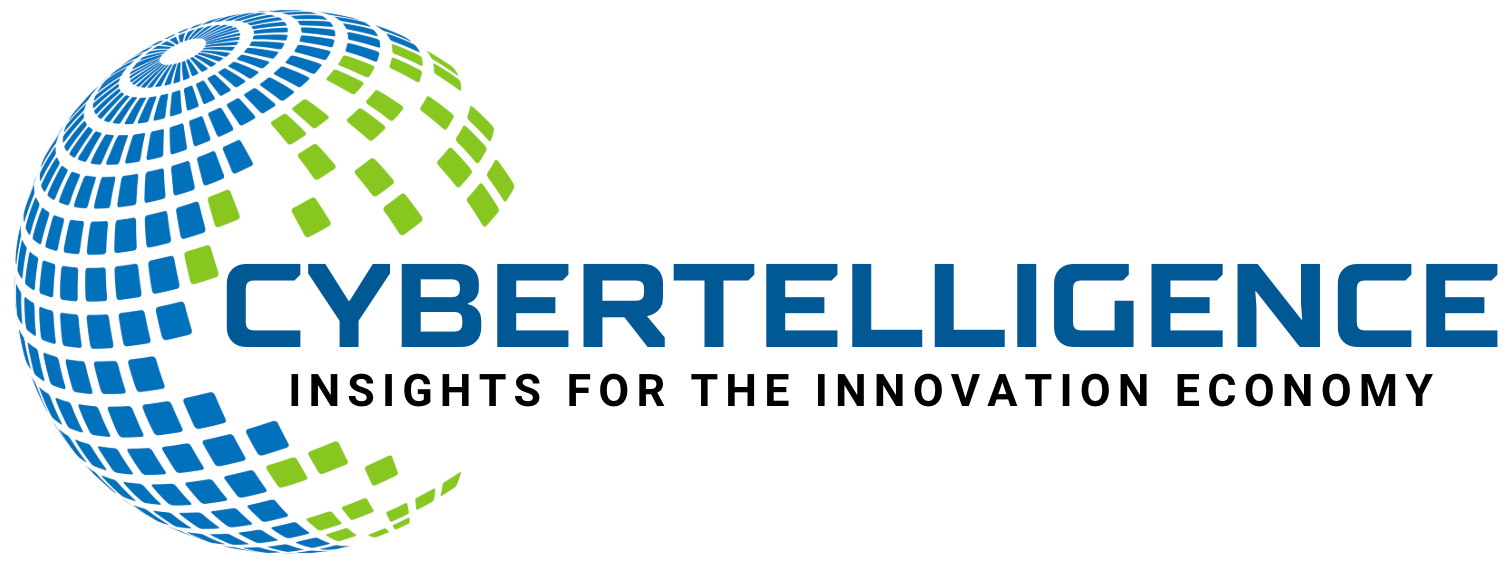How AI Trends Are Shifting the Business Model of the Internet
In today’s rapidly evolving digital landscape, AI trends are reshaping how we interact with the internet and consume information. The rise…

In today’s rapidly evolving digital landscape, AI trends are reshaping how we interact with the internet and consume information. The rise of large language models (LLMs) like ChatGPT and Google’s AI overviews is fundamentally changing the flow of web traffic and the traditional business models that have long supported news and content websites. This article dives into the latest data and insights revealing how these AI-driven shifts are impacting publishers, search engines, and user behavior, highlighting the opportunities and challenges ahead.
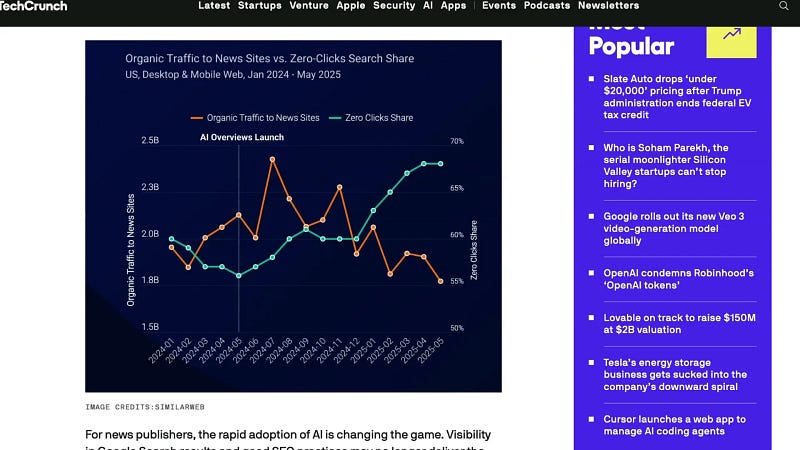
Table of Contents
- The Changing Flow of Web Traffic: AI’s Impact on News Referrals and Clicks
- The Broader Implications: A Foundational Shift in News Consumption
- Pushback and Regulatory Challenges: The EU Antitrust Complaint Against Google
- Big Moves in AI Productivity: Grammarly Acquires Superhuman
- Leadership Changes and Strategic Moves in AI Superintelligence
- The Rising Cost of Premium AI Services: Perplexity Joins the $200 Club
- Conclusion: Navigating the AI Trends Transforming the Internet
- FAQ
The Changing Flow of Web Traffic: AI’s Impact on News Referrals and Clicks
New data from SimilarWeb illustrates a striking transformation in how users access news online. Since Google launched its AI overviews in May last year, the share of so-called “zero-click” news searches — where users get their information directly from AI summaries without clicking through to external sites — has risen from 56% to 69%. This shift means that instead of driving traffic to news websites, search engines are increasingly keeping users within their own AI-powered ecosystems.
Consequently, organic traffic to news sites has dropped significantly, falling from 2.3 billion to 1.7 billion visits — a 25% decline. While there was a notable spike in traffic last summer, possibly due to backlash against Google’s AI features, this surge was short-lived as users grew accustomed to receiving news directly through AI summaries.

Interestingly, ChatGPT-related news prompts have surged by over 200% since January last year. Referrals from ChatGPT to news websites also climbed dramatically — from under one million to more than 25 million. This suggests a new user behavior where people use ChatGPT as a starting point but still click through to original sources. However, these referrals are not enough to compensate for the traffic lost from traditional search engines like Google.
What This Means for SEO and Publisher Traffic
SimilarWeb’s analysis reveals that traditional SEO metrics like search rank and impressions no longer guarantee web traffic as they once did. Many SEO consultants report that impressions have decoupled entirely from clicks, casting uncertainty on the foundation of SEO strategies.
The biggest beneficiaries of ChatGPT referrals are major news outlets such as Reuters, The New York Post, and Business Insider. When looking at the most searched topics via ChatGPT as a news source, finance and stocks dominate with 54% of prompts, followed by sports (17%) and weather (15%). Other topics like economics, politics, and tariffs also attract significant attention, each exceeding 10%.
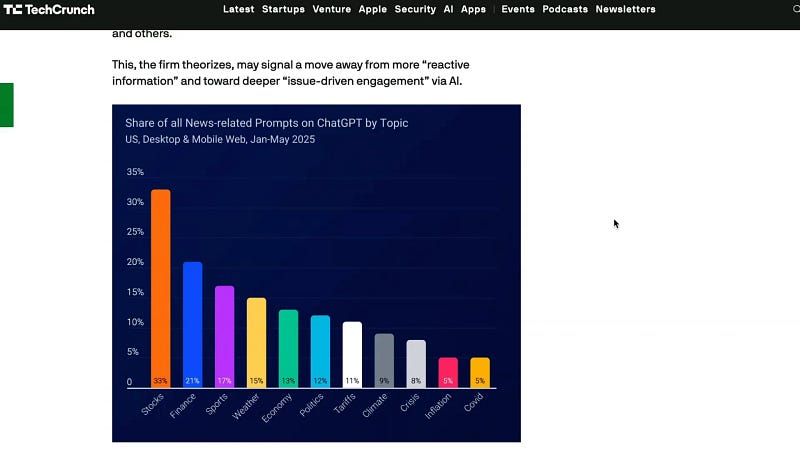
The Broader Implications: A Foundational Shift in News Consumption
The rise of AI-powered news summaries marks a shift from passive consumption of curated articles to a more active exploration of current events. For optimists, this could open up exciting new opportunities for engagement and innovation in news delivery. Yet, this transition is not without its challenges.
As with many AI-driven changes, the present is a chaotic in-between phase. Navigating this period effectively will determine how well we can harness AI’s potential for a better future. Meanwhile, entrepreneurs are already capitalizing on this evolution by building businesses focused on generative engine optimization — crafting new ways to optimize content for AI-driven discovery rather than traditional search.
Pushback and Regulatory Challenges: The EU Antitrust Complaint Against Google
Publishers in the European Union are actively resisting the impact of AI overviews on their traffic and revenue. The Independent Publishers Alliance has filed an antitrust complaint against Google, accusing the company of misusing web content for its AI summaries. The complaint highlights that publishers cannot opt out of AI overviews without also losing visibility in traditional search results, effectively forcing them to participate in a system that harms their business.
Google, however, maintains that AI overviews generate new demand by encouraging users to ask more questions, which in turn creates opportunities for content discovery. While Google denies significant negative effects, reports suggest the company is considering backend changes to comply with EU digital market regulations — for example, adding dropdown menus in shopping searches that link to external sites.
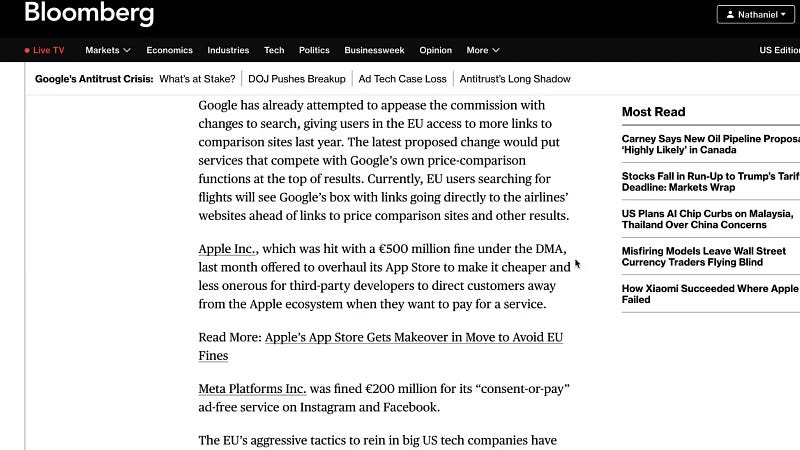
Despite legal challenges and regulatory scrutiny, the era of “ten blue links” in search results is undeniably coming to an end. Consumer preferences are shifting toward AI-powered search experiences, and many companies are poised to innovate in this evolving space. As Andrew Yan, cofounder of AI search startup Athena, puts it: “Companies have been spending the last ten or twenty years optimizing their website for the ten blue links version of Google. That version of Google is changing very fast and is changing forever.”
Big Moves in AI Productivity: Grammarly Acquires Superhuman
In a major acquisition signaling the convergence of AI and productivity tools, Grammarly has acquired the AI-powered email client Superhuman. Given that drafting emails is Grammarly’s top use case, this acquisition aligns perfectly with their ambition to transform into a comprehensive productivity platform.
Grammarly aims to evolve into a multi-product company with hundreds of intelligent, task-specific agents. Email, with professionals spending over three hours daily in their inboxes, represents a prime environment for this multi-agent assistance approach. This move underscores a broader trend where single-feature SaaS platforms are pivoting toward multi-feature productivity suites to stay competitive.

As Joy Guo succinctly puts it, “Feels like all single feature SaaS will need to pivot, e.g., Airtable becomes app builder, become multi-feature, e.g., Grammarly acquire Superhuman, or die.” The witty YC founder Hendrix Liu adds a bit of humor: “Superhuman plus Grammarly. Now your emails will be fast, perfectly punctuated, and still ignored.”
Leadership Changes and Strategic Moves in AI Superintelligence
Following a high-profile talent shift, Ilya Sutskever will take over as CEO of Safe Superintelligence after Daniel Gross’s departure. Gross has joined Meta’s superintelligence team as a key leader, while former OpenAI researcher Daniel Levy is promoted to president at Safe Superintelligence.
Addressing rumors of acquisition attempts by Meta, Sutskever emphasized the team’s commitment to their mission: “We have the compute, we have the team, and we know what to do. Together, we will keep building safe superintelligence.”
TechCrunch and industry observers have speculated about the reasons behind Gross’s move, suggesting that access to massive computational resources and strategic influence at Meta may be compelling factors. As Future Search founder Dan Schwartz notes, “They want, a, a zillion GPUs, and, b, a seat at the table. Zuckerberg can offer that.”
The Rising Cost of Premium AI Services: Perplexity Joins the $200 Club
Pricing trends in AI services are converging around a new premium tier. Perplexity has introduced a $200 per month subscription called Perplexity Max, joining the ranks of OpenAI, Anthropic, and Cursor in offering super premium plans.
The key feature of Perplexity Max is unlimited access to the Labs feature, which enables users to create custom dashboards, web apps, and documents within the platform. This move signals Perplexity’s shift from a simple AI search engine toward a full-fledged AI productivity suite. Early access to new features, including the upcoming Agendic Browser, is also part of the premium offering.
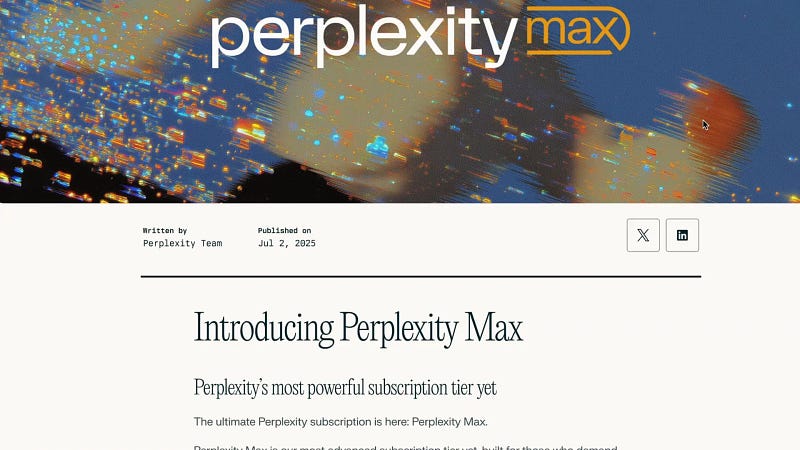
While the $200 price point may test the loyalty of Perplexity’s user base, it is likely to attract users who deeply rely on its specialized features. This strategy helps the company better understand and serve its core customers, even if the subscriber count remains modest.
Conclusion: Navigating the AI Trends Transforming the Internet
The AI trends shaping the internet today are driving a profound transformation in how content is discovered, consumed, and monetized. The rise of AI-generated summaries and conversational agents is disrupting traditional web traffic flows, challenging established SEO practices, and prompting regulatory pushback.
At the same time, these shifts are opening the door to new entrepreneurial ventures and innovations, especially in AI-powered productivity tools and agent-based workflows. As the digital ecosystem evolves, businesses and creators must adapt to a landscape where AI is not just a tool but a fundamental driver of user behavior and content engagement.
While the transition period may be chaotic and uncertain, those who navigate it skillfully will unlock tremendous opportunities in the AI-powered future of the internet.
FAQ
What are zero-click searches and why are they increasing?
Zero-click searches occur when users find the information they need directly on the search results page or AI summary without clicking through to external websites. These have increased due to AI overviews from Google and ChatGPT providing immediate answers.
How is AI affecting traditional SEO and web traffic?
AI-powered summaries and conversational agents are decoupling search impressions from actual clicks, reducing organic traffic to websites. This challenges traditional SEO methods that relied on driving clicks through ranked search results.
Why are publishers filing antitrust complaints against Google in the EU?
Publishers argue that Google’s AI overviews misuse their content and reduce traffic and revenue. They also highlight that opting out of AI summaries means losing visibility in regular search results, leaving them with no effective choice.
What does Grammarly’s acquisition of Superhuman signify?
It illustrates a trend toward AI-driven productivity platforms that integrate multiple intelligent agents, especially in email, which remains a critical productivity tool for professionals.
Why is the $200 monthly subscription becoming common among AI services?
This premium tier targets power users who need advanced features and customizations, helping companies understand their core customers better while monetizing specialized use cases.
This article is based on comprehensive research derived in part from the referenced video How LLMs Are Shifting The Business Model of the Internet
